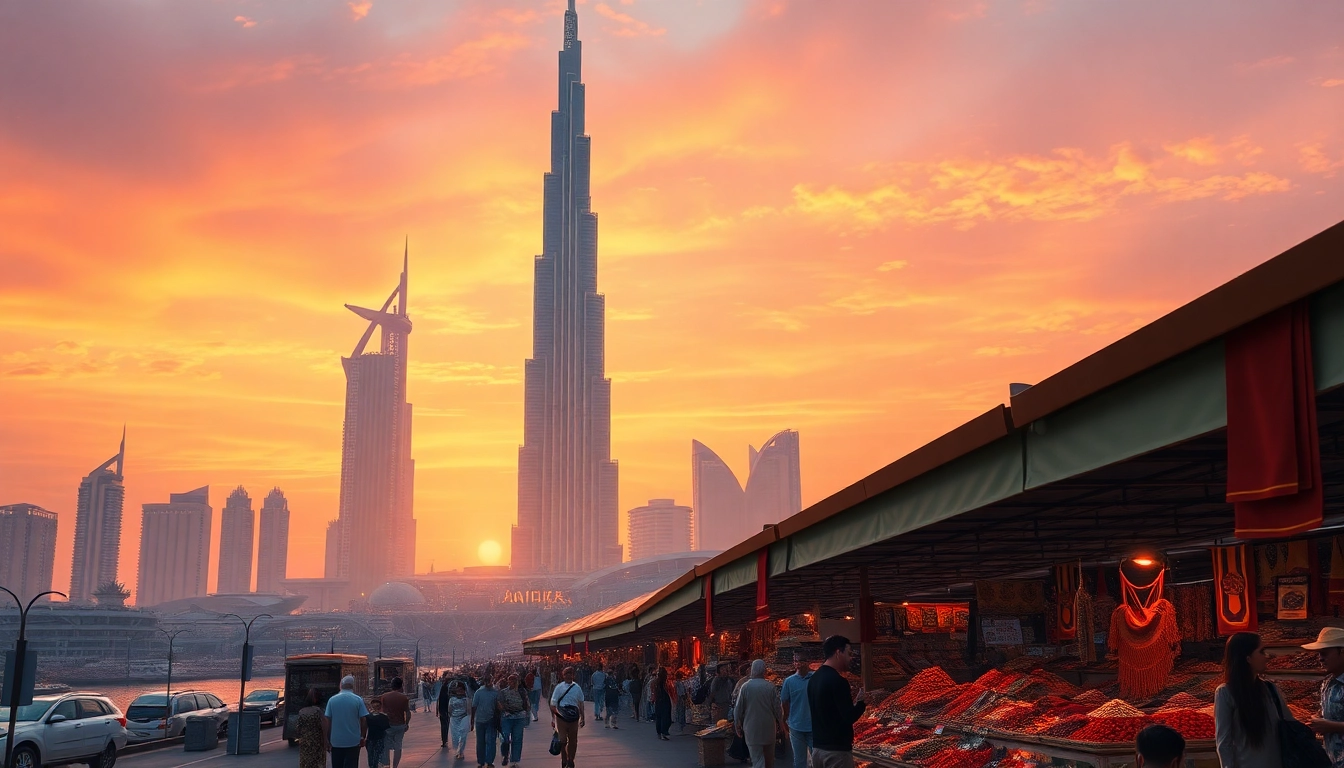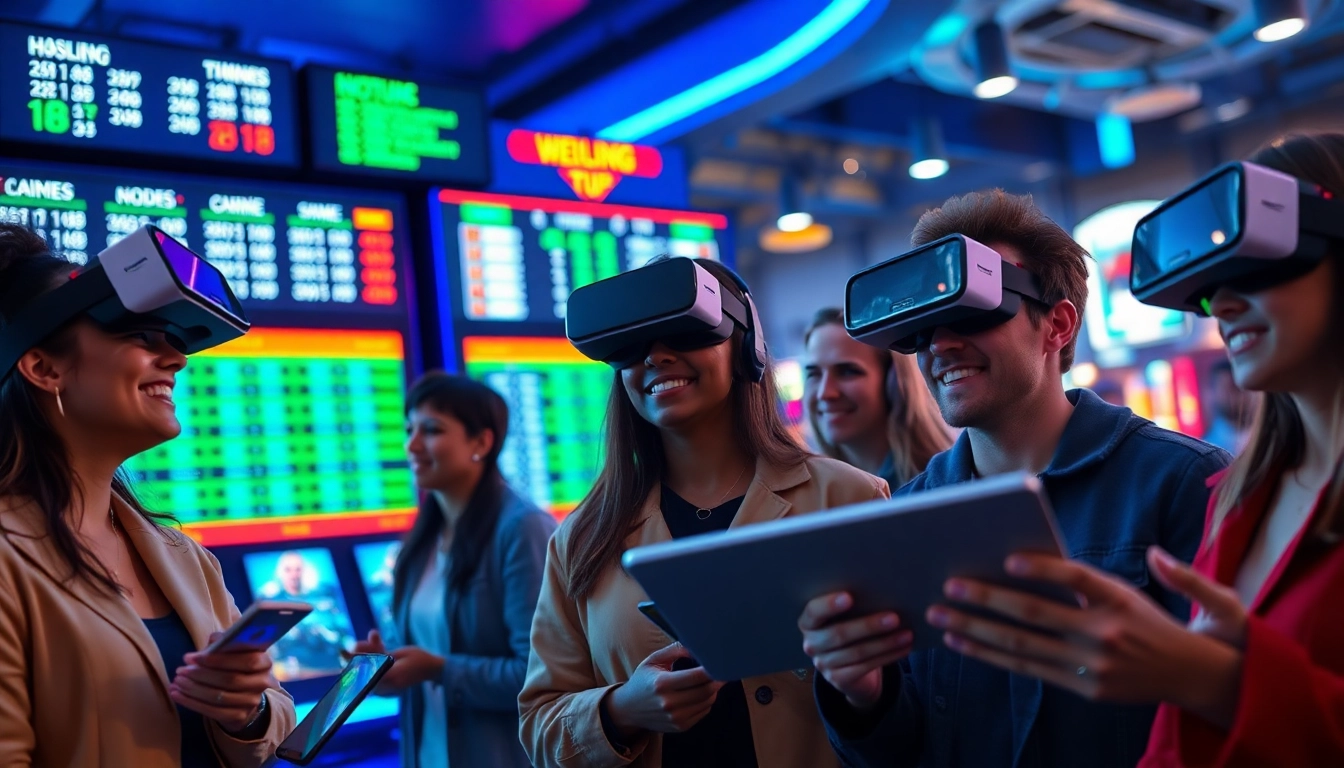Introduction to Travel to Dubai
Traveling to Dubai has become one of the most sought-after experiences in recent years. Blending modern innovation with rich cultural heritage, Dubai stands as a vibrant metropolis in the heart of the Arabian Peninsula. Whether you are drawn to its stunning architecture, luxurious shopping, or delectable dining, Dubai promises a unique experience unlike any other. To get started on your exciting journey, you can explore the resources offered by Travel to Dubai, where you’ll find everything you need to know.
Why Travel to Dubai is a Unique Experience
Dubai is a city that defies expectations. It serves as a perfect playground for thrill-seekers, luxury lovers, and culture enthusiasts alike. Where else can you ski indoors in a desert? Or see the world’s tallest building, the Burj Khalifa, standing majestically against the skyline? Visitors will be captivated by the city’s blend of ultra-modern skyscrapers and traditional marketplaces known as souks. Furthermore, Dubai’s strategic location also makes it an ideal base for exploring the surrounding Middle Eastern countries.
Key Attractions and Must-See Destinations
When visiting Dubai, several attractions are indispensable. Top of the list is the Burj Khalifa, standing at an awe-inspiring 828 meters, offering breathtaking views from its observation deck. The luxurious Dubai Mall, often referred to as a “city within a city,” boasts an aquarium, ice rink, and over 1,200 retail outlets. Don’t miss the Palm Jumeirah, an artificial archipelago known for its opulent hotels and stunning beaches. Lastly, the historic Al Fahidi District lets visitors step back in time to explore Emirati history and culture.
Understanding Dubai’s Diverse Culture
Dubai is a melting pot of cultures, drawing expatriates from all corners of the globe. Approximately 90% of its population is made up of foreigners, which results in a dynamic blend of languages, traditions, and lifestyles. The city’s cultural scene reflects this diversity, from art exhibitions showcasing local and international talent to food festivals that provide a taste of various cuisines. Understanding this multicultural environment is essential for travelers, as it enhances interactions and enriches their overall experience.
Planning Your Travel to Dubai
Best Times to Travel to Dubai
The best time to visit Dubai is between November and March when the weather is more temperate, allowing for outdoor activities and sightseeing without the sweltering heat typical of summer months. During this peak season, visitors can enjoy events such as the Dubai Shopping Festival and the Dubai Food Festival. Keep in mind that the months of April to October can reach extreme temperatures, which is typically avoided by most travelers.
Visa Requirements and Travel Restrictions
Visa regulations for entering Dubai can vary based on nationality. Citizens from several countries, including the US, UK, and many European nations, can obtain a visa on arrival, valid for 30 days. It’s advisable to check the emirate’s official immigration website or consult with your travel agent for any updates regarding visa policies. Additionally, stay informed about any travel restrictions or advisories that may impact your trip, especially in light of current global events.
Budgeting for Your Trip to Dubai
Dubai is known for its luxury, but it can cater to all budgets. The cost will largely depend on your choice of accommodations, dining, and activities. Budget hotels start around $50 per night, while luxury stays at five-star resorts can exceed $500. Dining in Dubai ranges from cheap eats in local food stalls to exquisite gourmet restaurants. Expect to spend at least $70 per day as a moderate traveler, factoring in meals, transportation, and attractions.
Accommodations and Transportation in Dubai
Top Hotels to Consider While Traveling to Dubai
Dubai offers a plethora of accommodations, catering to diverse preferences and budgets. For luxury, the Burj Al Arab, often dubbed the world’s only seven-star hotel, is an iconic choice. A little less ostentatious but equally elegant is The Address Downtown, located near the Burj Khalifa. For budget-conscious travelers, the Rove Hotel chain provides modern amenities at reasonable prices. Ensure to book your accommodation well in advance, especially during the peak tourist season.
Getting Around: Transport Options in Dubai
Dubai’s public transportation is both modern and efficient. The Dubai Metro is a cost-effective way to navigate the city, covering major attractions and business districts. Taxis are readily available and reasonably priced, while ride-hailing apps like Uber and Careem operate extensively. For short distances, the traditional wooden abras (boats) on Dubai Creek offer a unique and scenic travel experience. Consider purchasing a Nol card for ease of travel across all forms of public transport.
Choosing the Right Neighborhood for Your Stay
Choosing the right neighborhood can greatly affect your experience in Dubai. If you want to be at the heart of the city, Downtown Dubai offers proximity to landmarks like the Burj Khalifa and the Dubai Mall. For a local experience, consider staying in areas like Al Fahidi or Jumeirah, where you’ll find traditional markets and authentic Emirati culture. The Marina area is ideal for nightlife and beachfront, while Deira remains a historical area known for its bustling souks.
Experiences Not to Miss While You Travel to Dubai
Adventurous Activities in the Desert
A trip to Dubai wouldn’t be complete without a desert adventure. Dune bashing, a thrilling off-road experience driving through sand dunes, is a must-try for adrenaline junkies. You can also explore the desert on a camel ride, which offers a slower, more reflective way to take in the scenery. For a unique experience, spend a night in a desert camp, complete with traditional food, music, and stargazing.
Culinary Delights: Where to Eat in Dubai
Dubai’s culinary landscape is as diverse as its population. From street food stalls to high-end dining, there’s something for everyone. Indulge in traditional dishes like Al Harees and Shawarma, or experience Michelin-starred meals at restaurants like Nobu. Don’t miss the Friday brunches, a popular social gathering; you’ll find diverse food spreads that showcase cuisines from around the world.
Shopping Attractions and Markets in Dubai
Retail therapy is a favorite pastime for tourists in Dubai. The Dubai Mall is the world’s largest shopping destination, featuring luxury brands, a giant aquarium, and an indoor amusement park. For a more traditional experience, explore the Gold and Spice Souks in Deira, where you can haggle for some of the finest jewelry and spices. The Mall of the Emirates, famous for its indoor ski slope, also offers a variety of shopping outlets.
Safety and Travel Tips for Dubai
Staying Safe While Traveling to Dubai
Dubai is renowned for being one of the safest cities in the world, with extremely low crime rates. However, visitors are still urged to exercise standard precautions, such as avoiding poorly lit areas at night and safeguarding personal belongings. Also, it’s important to respect local laws and customs, as Dubai has strict regulations regarding behavior in public places, including laws against public intoxication.
Cultural Norms and Etiquette to Observe
Understanding the cultural norms of Dubai can significantly enhance your experience. Dress modestly, particularly when visiting religious sites, and refrain from public displays of affection. During the holy month of Ramadan, it is important to respect fasting hours. Always ask for permission before photographing people, especially women, and remember that gestures such as pointing your feet at someone may be considered rude.
Resources for Emergency Situations in Dubai
Knowing the appropriate resources available in Dubai can help you navigate unexpected situations. The emergency contact number is 999 for police and 998 for medical emergencies. Most hotels have concierge services that can assist with emergencies or provide directions to the nearest hospital. Local embassies can help with lost passports or other consular issues. Always keep a copy of your documents in a secure location separate from the originals.




